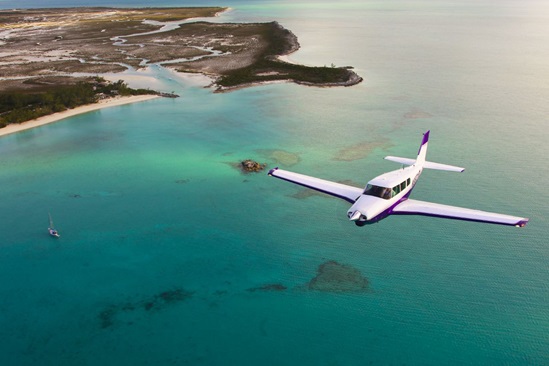FAA SPECIAL RULE EXTENDS MANY OPERATING PRIVILEGES TO JUNE 30
AOPA-Backed Initiative Addresses Several Pilot Concerns
The Aircraft Owners and Pilots Association supported efforts that resulted in the FAA issuing a special federal aviation regulation (SFAR) yesterday. The SFAR will help pilots by extending the validity of expired or soon-to-expire medical certificates, flight reviews, recency of experience requirements for instrument pilots, and flight instructor certificates—in most cases— until June 30.
Additional conditions tied to proficiency were attached to several provisions of the rule intended to provide relief from the near-total shutdown of flight training and testing caused by the coronavirus pandemic, which was declared a national emergency on January 31.
“The regulatory relief provided in this SFAR will enable the continuity of aviation operations that are critical during the COVID-19 outbreak, including operations that support essential services and flights that support response efforts,” says the final rule, adding that the rule extends relief intended to prevent individuals from suffering “unnecessary economic burdens due to circumstances related to the outbreak that are outside of their control.”
AOPA has begun a detailed review of the SFAR, which is titled Relief for Certain Persons and Operations during the Coronavirus Disease 2019 (COVID19) Outbreak, and takes effect immediately on publication.
“We appreciate the FAA’s work on this relief package,” said AOPA President Mark Baker. “There appear to be some very useful provisions in the 94-page document, and we will address more of its details soon.”
Here are some of the rule’s impact on general aviation:
- Medical certificates. The FAA extended the validity periods of airman medical certificates that expire between March 31 and May 31 through June 30. However, the prohibition on operations during medical deficiency remains in effect.
- Flight reviews. The FAA is offering a three-calendar-month “grace period” for those whose flight review may expire between March 1 and June 30. A condition of eligibility for the extension is that the pilot must have logged at least 10 hours of pilot in command time within the 12 calendar months preceding the month the flight review was due, in an aircraft for which that pilot is rated. Also, eligible pilots must complete FAA Safety Team online courses totaling at least three Wings credits. The courses must have been completed in January or later to meet this requirement, according to the rule.
- Recent flight experience, pilot in command. The FAA only provided relief for instrument recency. It extended by three extra months the requirement to be current under FAR 61.57(c) by having performed and logged, within the six calendar months preceding the month of the flight, six instrument approaches, holding procedures and tasks, and intercepting and tracking courses through the use of navigational electronic systems. An additional eligibility requirement is that the pilot must have logged, in the preceding six calendar months, three instrument approaches in actual weather conditions, or under simulated conditions using a view-limiting device. Eligible pilots may exercise the relief in this SFAR through June 30, it says. Pilots who are unable to meet the instrument experience requirements before June 30 may still reestablish recency in accordance with FAR 61.57(d), but the number of months available to attain the instrument experience before having to take an instrument proficiency check “will depend on when the person last established instrument recency” in accordance with the regulation.
- Knowledge tests. Applicants whose knowledge tests expire between March and June will have their knowledge tests’ validity extended by three months, making the applicants eligible for a practical test for a certificate or rating issued under Part 61 for those additional three calendar months.
- Flight instructors. Flight instructor certificates, unlike pilot certificates, expire every two years. The SFAR will extend the validity of flight instructor certificates that expired between March 31 and May 31 until June 30.
- U.S. military and civilian personnel. The SFAR gives U.S. military and civilian personnel who were assigned outside the United States in support of U.S. Armed Forces operations and returned to the United States from deployment in October 2019 through March an additional three months beyond the six months allowed to comply with flight instructor and airframe and powerplant mechanic inspection authorization requirements, or complete the appropriate practical test, within six calendar months after returning to the United States.
- Inspection authorization. The SFAR grants to airframe and powerplant mechanics with inspection authorization who were not able to meet the first year (even-numbered year) renewal requirements by March an additional three months (April to June) to complete one of the listed activities to meet the first-year renewal requirements.
For ongoing news and advocacy updates around the impacts of the coronavirus on GA, visit AOPA’s resource page.


